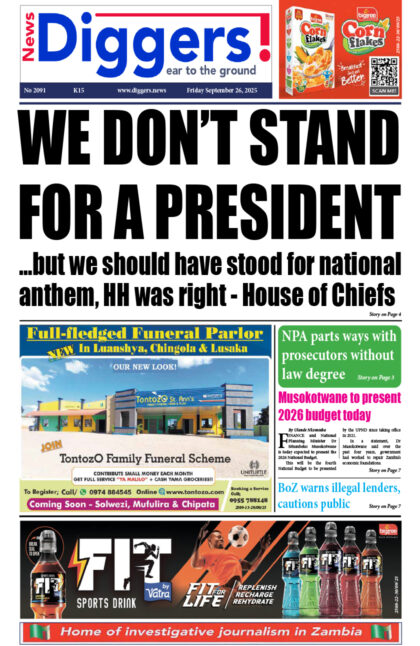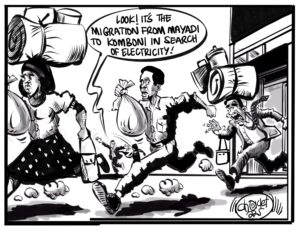Lusaka lawyer John Sangwa says only the High Court has the authority to determine whether or not the Bill of Rights has been violated by any court, including the Constitutional Court.
And Sangwa says the petitioners are not asking the High Court to reopen the decision of the Constitutional Court in the presidential petition, but simply want the lower court to look at what the ConCourt did and whether it was in line with article 18(9) of the Constitution.
Meanwhile, Solicitor General Abraham Mwansa has argued that the High Court has no jurisdiction to hear a case relating to the interpretation of the Constitution as only the Constitutional Court has such power.
Mwansa has, therefore, urged the High Court to dismiss with costs the petitioner’s petition as it was misconceived at law.
This is in a case in which UPND leader Hakainde Hichilema and his Vice Geoffrey Bwalya Mwamba have asked the High Court to determine whether their right to be heard in a Presidential election petition was violated when the Constitutional Court dismissed it on September 5, 2016, for want of prosecution.
When the matter came up, Thursday, before High Court Judge Mwila Chitabo, Mwansa raised preliminary issues on whether the High Court could interpret otherwise, in respect to the timeframe in which a Presidential petition election should be heard and whether the determination of the petition was a civil right as to bring it under Article 18 of the Constitution.
And Mwansa urged Judge Chitabo to dismiss Hichilema’s petition with costs, saying it was misconceived at law as the High Court had no jurisdiction to hear such an application.
He argued that the Constitutional Court had the original and final power to hear a matter relating to the interpretation of the Constitution and not the High Court, adding that according to the provisions of the law, the interpretation or reviewing of the Constitution was based in the Constitutional Court and not the High Court.
Mwansa said the determination of any matter before the Constitutional Court or any other court would not constitute or give rise to the existence of any violation of civil rights or obligation.
He submitted that had the Presidential petition election been heard by a lower court, the petitioners could have been entitled to the right to appeal to a superior court, adding that since it was heard by ConCourt, which was of final jurisdiction, it was not appealable hence the same judgement could not be reviewed by the lower court.
“If the matter was being determined by the lower court, the petitioners could have been entitled to a right to appeal to a superior court. However, the petitioners’ matter was determined by the Constitutional Court exercising its final jurisdiction. The judgement delivered on September 5, 2016, by ConCourt is not appealable and the same judgement cannot be reviewed by this court,” Mwansa insisted.
“The proceedings before you emanate from the majority judgement from the Constitutional Court dismissing the petitioners’ election for want of prosecution. And these proceedings have nothing to do with the determination of any civil rights or obligations, or indeed, the violation of any of the articles, 11 to 26 inclusive. The proceedings before you have nothing to do with the violation of part three of the Constitution.”
He said petitioners should abide by court rules in order to ensure that matters like the Presidential election petition were heard within the stipulated period of 14 days.
But in his submissions, Sangwa said they were not asking the High Court to reopen the decision of the Constitutional Court in the Presidential petition, but simply wanted the lower court to look at what the ConCourt did and whether it was in line with article 18(9) of the Constitution.
He said it was only the High Court, which had the authority to determine whether or not the Bill of Rights had been violated by any court.
He said the High Court had powers to control the three arms of government and that nobody was above the Constitution.
“We are not asking this court to reopen the decision of the Constitutional Court; it has done its work. We are not asking for review (either) because the Constitutional Court is facto officio. But we want it to determine whether what the Constitutional Court did was consistent with Article 18(9) of the Constitution,” said Sangwa.
The matter has been adjourned to November 5, 2018.
This matter was sent back to the High Court following the Supreme Court’s decision to dismiss with costs an appeal by the petitioners in which they wanted Judge Chitabo to recuse himself from handling the matter on account of perceived bias
























